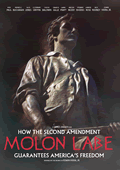Other
Emord
Articles:
Mandatory Vaccination is an
Assault on Individual Liberty
By Attorney Jonathan
Emord
Author of "The Rise of Tyranny" and
"Global Censorship of Health Information" and
"Restore The Republic"
April 27, 2015
NewsWithViews.com
The fundamental problem Hillary faces, which may well prove insurmountable, is one of credibility. Most voters do not trust her. Her public service baggage has become too weighty to ignore. In addition, she is viewed as inflexible, boring, and temperamental. Most Americans admire a leader who is cool under pressure, affable, witty, and inspiring. She does not fit the leader profile. Above all else, to gain the confidence of the American people, a candidate for president must inspire trust. It is that trust factor that eludes Hillary, in part because she has such a poor track record but also because she cannot roll with the punches and respond with ease and grace to complex issues. She is mechanical and awkward when she needs to be fluid and graceful.
Peter Schweizer’s new book, Clinton Cash, is due out May 5. In it, that former Hoover Institute fellow known for his books exposing government corruption, establishes temporal links between receipt of funds from foreign entities by the Clinton Foundation and access to and actions by then Secretary of State Hillary Clinton. He apparently lacks the penultimate proof of a quid pro quo but the coincidence in timing of receipt of funds and interaction with foreign representatives raises that question and begs for a full investigation.
Even if the Clinton Foundation’s receipt of funds from foreign entities cannot be proven to be part of a criminal quid pro quo, there is a more fundamental problem facing Hillary. The appearance of impropriety reduces public trust in her even further. It extends the credibility gap, making it even more difficult for Hillary to convince voters that she is trustworthy.
Unquestionably, any conscientious person who assumed the office of Secretary of State would avoid receipt of funds to a family enterprise from major foreign entities during his or her service in office. In particular, a conscientious Secretary of State would be alarmed if a major foreign entity from a country seeking preferential treatment from the Secretary made large donations to a family enterprise coincidental with that country’s lobbying efforts. Consistent with her nonchalant use of private emails to perform public business, the Clinton cash matter reveals a cavalier unwillingness to be ultimately accountable to the American people. It suggests that Hillary thinks the common strictures on others in public office that are designed to prevent influence peddling and to ensure proper handling of public matters do not apply to her, that if she is not above the law she is certainly entitled to skirt it for her own convenience or benefit.
Even if the evidence in Schweitzer’s book is not enough to indict Hillary Clinton for a crime, it is enough to raise fundamental questions about her abuse of the public trust. It calls into question her independence from foreign influence, her accountability to the American people, and her management of public resources. All of those factors create a formidable obstacle to her electability because they call into question her integrity and reliability.
Moreover, Hillary’s weakness in inspiring trust invites focus on opposition candidates with a stellar record who, conversely, inspire public trust, whose service to country has been more than to self, and whose exercise of political power has not been for personal gain. The Clintons have amassed a fortune based on public connections that have ultimately yielded enormous private rewards. They are archetypical Washington insiders, decades removed from any real contact or involvement with the typical American and decades engaged in rubbing elbows with political and financial elites the world over. It would be a lie to contend that they were unaware of how their public actions could affect their private fortunes.
Bill Clinton has spent years since serving as President amassing a fortune for his family based on milking his public contacts, and he continued to do so while Hillary served as Secretary of State. She was undoubtedly aware of actions she could take as Secretary of State that would redound to the benefit or detriment of the family financial empire. So aware, the Clintons chose not to refuse donations from foreign entities in countries having dealings with Secretary of State Clinton. That lack of action is indeed telling, and if Schweitzer presents nothing more than that in his book, it will be enough to add to her already significant credibility gap.
At a minimum, it is part of a pattern of negligent leadership by Hillary Clinton. Her failure to end foreign entity contributions to the Clinton Foundation when she assumed the position of Secretary of State is akin to her failure to take any action to bolster security at, or sound the alarm for a protective military presence around, the U.S. mission in Benghazi. Her failure to end foreign entity contributions to the Clinton Foundation when she assumed the position of Secretary of State is also akin to her failure to discontinue use of her private emails for confidential public communication while serving as Secretary of State. Each of the three acts of negligence is consequential because they go to the heart of whether Hillary Clinton is deserving of public trust; they reveal a cavalier attitude on her part that she ought to be able to escape public accountability.
|
|
If Hillary is to lose, it will come about in no small measure because the American people decide she is not deserving of their trust and that she lacks the character necessary to be President of the United States. Her history, her present actions, and her non-existent or inarticulate public response to questions about her accountability make her an ideal target for attack on the trust factor. Of course, a comparably untrustworthy Republican nominee will leave the electorate with no true choice. If, however, the Republican nominee has a clean history, a clear commitment to serve his or her country more than self, and grace under pressure, the contrast with Hillary will be great and could be enough to deny her the presidency.
Click here to visit NewsWithViews.com home page.
© 2015 Jonathan W. Emord - All Rights Reserved
Jonathan W. Emord is an attorney who practices constitutional and administrative law before the federal courts and agencies. Ron Paul calls Jonathan “a hero of the health freedom revolution” and says “all freedom-loving Americans are in [his] debt . . . for his courtroom [victories] on behalf of health freedom.” He has defeated the FDA in federal court a remarkable eight times, seven on First Amendment grounds, and is the author of the Amazon bestsellers The Rise of Tyranny, Global Censorship of Health Information, and Restore the Republic. He is the American Justice columnist for U.S.A. Today Magazine and joins Robert Scott Bell weekly for “Jonathan Emord’s Sacred Fire of Liberty,” an hour long radio program on government threats to individual liberty. For more info visit Emord.com, join the Emord FDA/FTC Law Group on Linkedin, and follow Jonathan on twitter (@jonathanwemord).
Website: Emord.com
E-Mail: jemord@emord.com
Moreover,
Hillary’s weakness in inspiring trust invites focus on opposition
candidates with a stellar record who, conversely, inspire public trust,
whose service to country has been more than to self, and whose exercise
of political power has not been for personal gain.














 Share This Article
Share This Article







